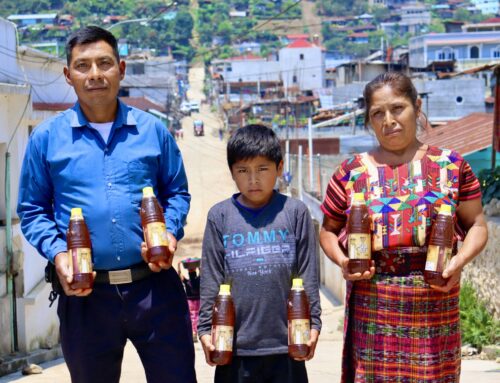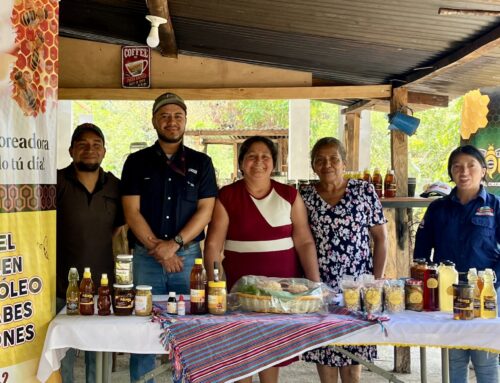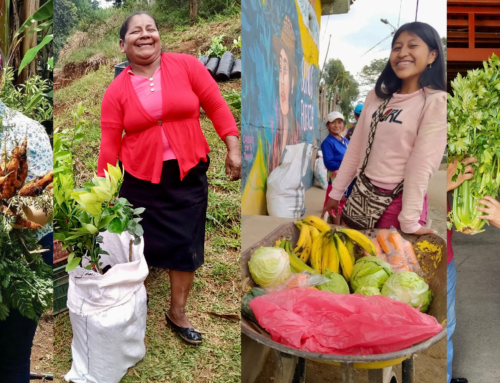From Marcela:
In Spanish there is a saying ‘No es lo mismo verla venir, que bailar con ella’ or, ‘It’s not the same to see her coming, than to dance with her.’

I have anticipated this trip for a long time now with a wide range of emotions. Our Food 4 Farmers team and Board have met, discussed, planned, and debated many ideas, but we hadn’t until now been able to test them. Now I found myself in these tiny co-op offices asking these wonderful people, “Have you heard of food security? What do you think are the causes of the thin months?”
Before my first meeting in Nicaragua I wondered if we had the right ideas and methodology, and also asked myself if the images that I had created in my mind were going to match the reality. But right away, participants – both co-op staff and producers- expressed very positive opinions about the process. They especially liked the way we had structured the meetings so producers had a chance to express and discuss their opinions. We worked hard to make sure this component was part of our work, and it made a real difference in community engagement.
 At SOPPEXCCA, there is a tecnico who has been working with me, non-stop. His name is Domingo Vargas and he attended the food security forum organized by Green Mountain Coffee Roasters and CAN. He is so excited about this work, and such an important part of our team here! He is also very organized and responsible; for those of you who have done this kind of work, you know how appreciated those qualities are.
At SOPPEXCCA, there is a tecnico who has been working with me, non-stop. His name is Domingo Vargas and he attended the food security forum organized by Green Mountain Coffee Roasters and CAN. He is so excited about this work, and such an important part of our team here! He is also very organized and responsible; for those of you who have done this kind of work, you know how appreciated those qualities are.
Fatima Ismael, the general manager of SOPPEXCCA, has been totally open and supportive of this time-consuming process. She wants all the co-ops who are part of SOPPEXCCA to have a plan of action for food security and sovereignty for the next 5 years.
The tricky part of this work is that these concepts and this process are new to farmers; many of them come from a pattern of being locked in a cycle of not producing their own food for many years, for all kinds of reasons. Although they identify “dependency of coffee” as a vulnerability, they don’t always make the connection between the thin months and not producing their own food.
The reasons for this are complex and sometimes very valid — ranging from the high cost of food production, to lack of enough land — and they point to the need of a strategic and coherent plan that brings holistic, long-term solutions to this difficult and complex problem.
We have had several incredibly rewarding working sessions with SOPPEXCCA co-ops, as well as with staff and co-op reps to discuss possible solutions. The time here has seemed short, but it’s gotten us off to a great start. I’m excited about what we’re helping our partners build here, and look forward to their great success.





